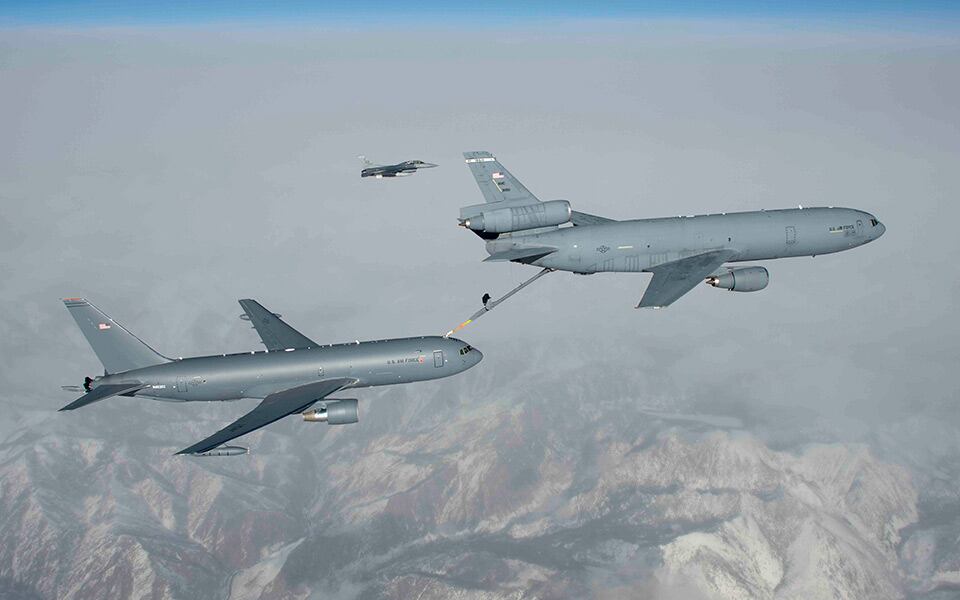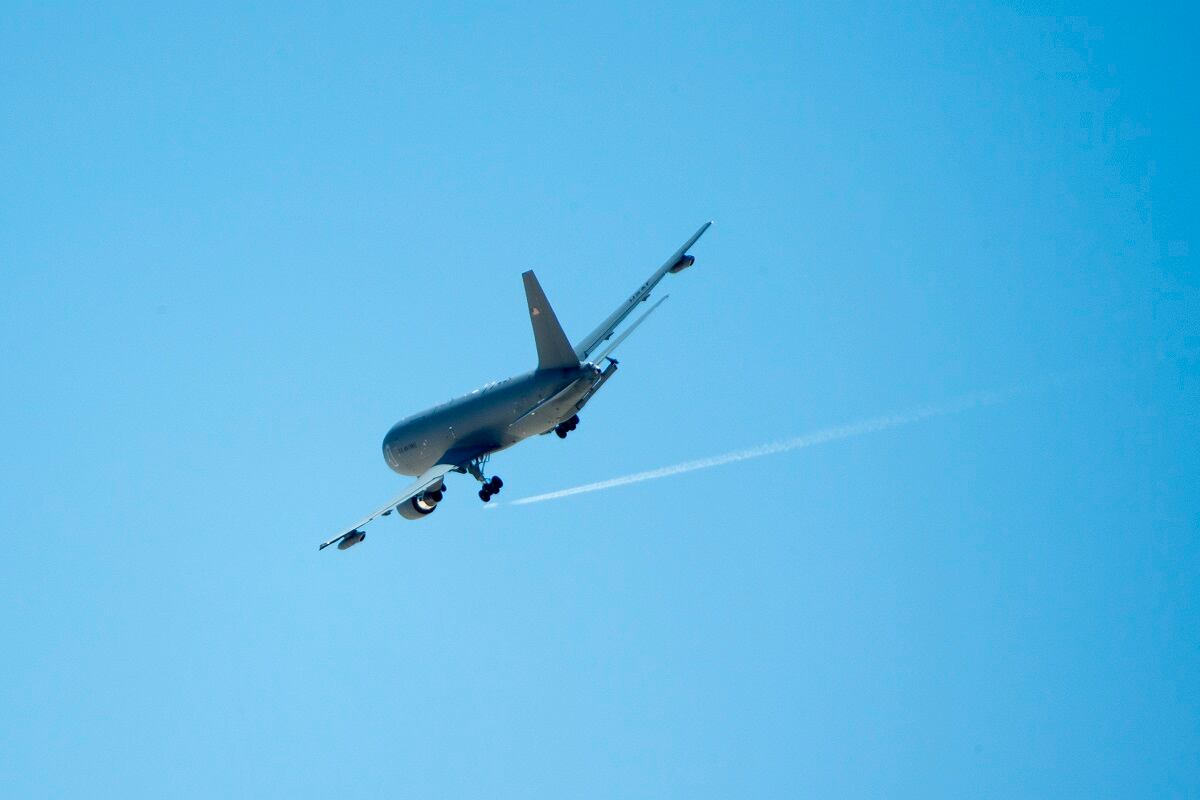WASHINGTON — As Boeing inches toward delivery of the first KC-46 tanker, it will have to eat yet another cost overrun this quarter, worth $179 million before tax.
The company disclosed Oct. 24 that it racked up the additional charges due to a “higher than expected effort to meet customer requirements” as well as delays to KC-46 testing and certification. The total penalty is worth $140 million post taxes, Boeing CEO Dennis Muilenburg said during an earnings call Wednesday.
Boeing has now paid more than $3.5 billion out of its own pocket, as the company is responsible for any costs beyond the $4.9 billion fixed-price contract it signed with the U.S. Air Force.
RELATED

“We continue to make steady progress toward final certification of the KC-46 tanker,” Muilenburg said. “We are working with our U.S. Air Force customer toward completing all the steps required to deliver the first tanker aircraft this quarter.”
Four aircraft have completed the Federal Aviation Administration ticketing process and have moved to the Boeing defense delivery center, he said.
“While there is still work ahead of us, we’re moving closer to delivering this highly mission-capable aircraft to our customer,” he added.
The Air Force plans to buy 179 KC-46s throughout the life of the program, which is now running more than a year behind schedule. The service was originally supposed to receive its first 18 certified tankers in summer 2017, but delivery of the first tanker slipped to the end of 2017, then to October of this year, and has now been further postponed.
Last week, Air Force Secretary Heather Wilson confirmed that the service will not accept the first KC-46 this month. Boeing and Air Force officials met Oct. 17 to talk over the state of the program, but no announcement has been made on when the Air Force might award a military-type certificate or downgrade five major technical deficiencies — two things seen as vital precursors to first delivery.
RELATED

An Oct. 22 notice on the Federal Business Opportunities website soliciting contractor support for a ceremony celebrating the first KC-46 delivery states a notional Nov. 16 date, perhaps hinting that first delivery could come as early as next month.
But an Air Force spokeswoman told Defense News on Monday that the date is for planning use only, and that a firm delivery timeline has not been established.
Beyond the ongoing troubles with the KC-46 procurement, the earnings call allowed Boeing the chance to celebrate its recent contract wins for the MQ-25 tanker drone contract, T-X trainer jet and UH-1N helicopter replacement.
Muilenburg envisions T-X as “a franchise program for much of this century,” with sales opportunities that far outstrip the initial 350 planes needed by the Air Force. Boeing believes the program is potentially worth up to $40 billion, with more than 2,600 aircraft sold domestically and internationally as trainers and light-attack aircraft.
When an analyst pointed out that both T-X and MQ-25 will be developed under fixed-price contracts and could leave Boeing vulnerable to cost overruns as is the case with the KC-46 program, Muilenburg responded that T-X and MQ-25 are considerably less risk than KC-46 was at time of award.
Boeing has made investments allowing it to produce an MQ-25 prototype and two T-X aircraft that have already flown, while the KC-46 was still relegated to paper designs when the company was awarded the contract, he said.
Valerie Insinna is Defense News' air warfare reporter. She previously worked the Navy/congressional beats for Defense Daily, which followed almost three years as a staff writer for National Defense Magazine. Prior to that, she worked as an editorial assistant for the Tokyo Shimbun’s Washington bureau.








